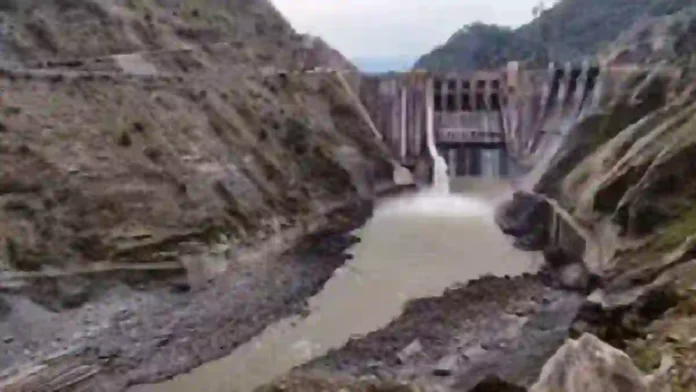By suspending the treaty as retaliation for the Pahalgam attack, India has been able to control, to some extent, the western rivers and flow of water to Pakistan.
India’s suspension of the Indus Waters Treaty (IWT) in the aftermath of the April 2025 Pahalgam terror attack has triggered a significant water crisis in Pakistan, particularly affecting its Punjab province and the sowing of Kharif crops.
The IWT, signed in 1960, governs the sharing of water from six rivers between the two countries, allocating the eastern rivers (Sutlej, Beas, Ravi) to India and the western rivers (Indus, Jhelum, Chenab) to Pakistan. India’s move to suspend the treaty was framed as a retaliatory measure, with Prime Minister Narendra Modi’s government stating that water-sharing cannot continue alongside cross-border terrorism.
As a direct consequence of the suspension, Pakistan has reported a 13.3% year-on-year shortfall in water drawn from the Indus River System, with only 124,500 cusecs released to dams on June 5, 2025, compared to nearly 144,000 cusecs the previous year.
Read- Operation Sindoor Exposes Operational Weaknesses In Pakistan’s Submarine Capabilities
This shortfall is particularly acute during the early Kharif season, resulting in a nearly 21% water shortage that threatens the timely sowing and yield of monsoonal crops in Punjab. The crisis is exacerbated by a severe heatwave, delayed monsoon rains, and critically low reservoir levels at major dams like Tarbela and Mangla.
India’s suspension of the IWT has also included halting the sharing of vital flood data, which increases Pakistan’s risk of unanticipated flooding during the monsoon season. Experts warn that without access to upstream water-level data, Pakistan could face disasters if river levels rise suddenly during heavy rains. The situation has prompted Pakistan’s Ministry of Water Resources to send four formal requests to India for the reinstatement of the treaty, all of which have been rejected by New Delhi.
Read- GE Actively Vying For Contract To Manufacture Engines For AMCA Stealth Jet Program: CEO Larry Culp
The broader impact is severe: the Indus River system is the lifeline for Pakistan, providing water for 90% of its crops and supporting the livelihoods of the majority of its population. With the treaty in abeyance, Pakistan’s agricultural output, food security, and hydropower generation are all under threat. The crisis has also deepened internal political tensions in Pakistan and raised the specter of further escalation between the two nuclear-armed neighbors.
India’s suspension of the Indus Waters Treaty has led to a significant reduction in water flow to Pakistan, triggering an agricultural and humanitarian crisis, especially in Punjab province, and escalating diplomatic tensions between the two countries.
Based On A NDTV Report
Agencies




